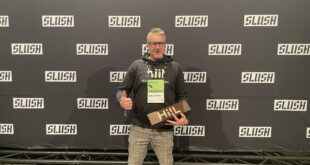Last week, the second ever #Nordicmade tour touched down in NYC to meet the local startup ecosystem, including Lemonsqueeze. #Nordicmade is collaborative initiative between the five Nordic countries founded in Copenhagen in 2014, to increase cross-border collaboration and promote Nordic startups internationally.
#Nordicmade’s NYC tour was whirlwind trip that took the 12 Nordic founders on a whirlwind tour of the New York startup ecosystem, to knowledge share, meet investors, and for some, taking the first steps towards scaling into the US market.
Lemonsqueeze, which since 2013 has been an entry point for European startups expanding into the US, was a critical part of the tour. Only a few years later, the company is the most established US expansion mentor in the Nordics, cooperating with companies such as Templafy, Joe and the Juice, Sling, Aims Innovation, GAN Integrity, and Falcon.
“We love to work with the Lemonsqueeze team, as we feel they speak our language, and fully understand the needs of the Nordic entrepreneurs who want to expand to the US market” says Salóme Guðmundsdóttir. CEO of Icelandic Startups.
From the US to Europe and the world
Now, Lemonsqueeze is expanding their offices – to Israel, Austria, the Netherlands, Poland, and soon Denmark – and carrying on the momentum that has had them barely able to keep up with increasing demand for their services.
While Denmark, the home of CEO and Founder Mik Strøyberg, is a much anticipated expansion, internationalizing quickly has never been the forte of Nordic startups.
“The Nordics is such an exciting market, but it’s not always the most exciting in terms of companies expanding into the US” says Mik.
“Other countries are relatively fast to start talking about the US, create foundations, and get the first traction.”
Going global, staying local
Lemonsqueeze assists companies expanding using a bottom-up approach, that partners with movers and shakers who are already active ecosystem builders and prioritize market expansion.
New partners brought on are Brent Von Assen, an operations expert who cut his teeth at VANMOOF, a Dutch IoT that developed the first worldwide smart bicycle; Barbara Sobowska, a Harvard-trained attorney and part of Warsaw’s vibrant startup community; Tim Röhrich and Natalie Thonhauser, former management consultants who now run the Vienna-based global startup event the Pioneers Festival; Toot Shani, a partner at the Israeli VC firm Match Maker Ventures; and Oddur Sturluson who has been part of the Icelandic startup community since he started his first company at 23.
“The partners need to understand the vision of unlocking the potential of home companies in their market. It’s not about selling a product, it’s making sure companies can get the most out of their full potential. They need to know that they are part of something bigger”, says Mik. And it is equally important that operational partners have “a strong local understanding”.
Local partners can, critically, understand the cultural differences that inform the market needs of different companies. For example, some cultures “place a greater importance in have their first sales in a new market, while others will not do business in a country until their foundations for growth are 100% compliant,” he explains.
No one-size-fits-all
While Lemonsqueeze might be considered to have a more “hands on” approach compared to other global strategy firms, they give the ultimate stamp of quality assurance – to both the expanding companies and the partners. As Mik explains:
“Between the sourcing partners and operational partners, there is an infrastructure that makes sure all of this is intact, and that is is run from one central place.”
However, they are firm in their belief that there is not a “one size fits all” approach to international expansion, and each company has different needs.
One aspect of their core approach, however, is moving fast. In fact, the normal timeline for expansion is as short as 6 months.
“If you really want to scale the only real way to do it is to build it up strong from the get go, but do it super fast and only with stuff that’s necessary. That’s one of the biggest problems with expanding – people will offer you 10000 things that you don’t need. Because we are one single point of contact, we can build something strong, and validate it fast.”
 Nordic Startup News Early Stage Startup News From The Nordics
Nordic Startup News Early Stage Startup News From The Nordics


